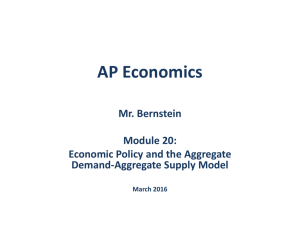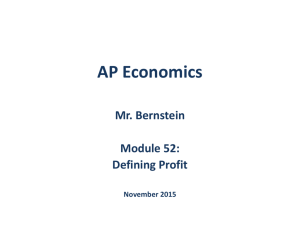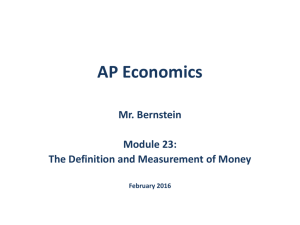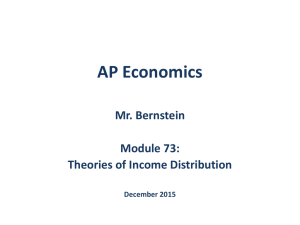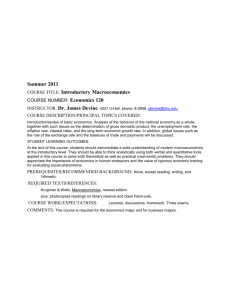Module 1 - The Study of Economics
advertisement
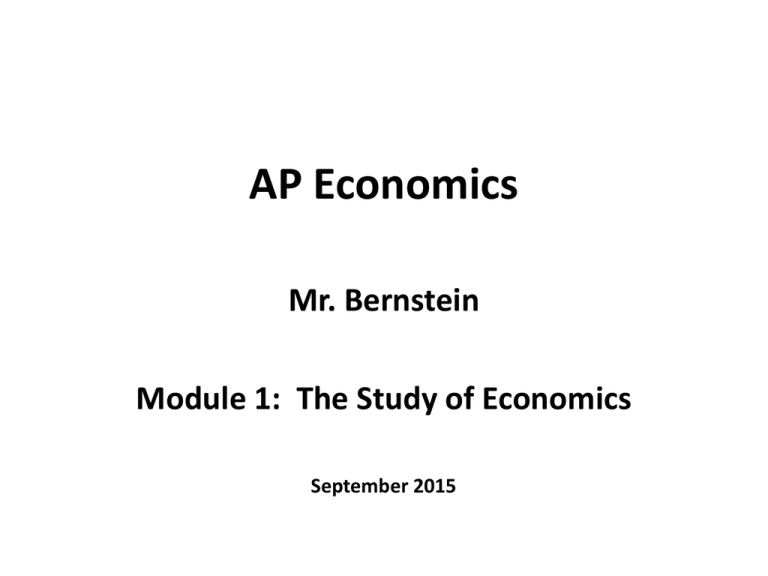
AP Economics Mr. Bernstein Module 1: The Study of Economics September 2015 AP Economics Mr. Bernstein Resources are Scarce • Land • Labor • Capital • Entrepreneurship or Human Capital Scarcity implies choices must be made by individuals, corporations or societies • Example: Building a dam…or fracking 2 AP Economics Mr. Bernstein Opportunity Cost • The Real Cost of Something Is What You Must Give Up to Get It • Example: Buy a new phone for $200, but now cannot buy new shoes • Economic costs are $200 PLUS the enjoyment of wearing new shoes, which you now can’t do • Opportunity costs are implicit, not explicit 3 AP Economics Mr. Bernstein The Difference between Micro and Macro • Microeconomics focuses on choices made by individuals, households, or firms—the smaller parts that make up the economy as a whole. • Macroeconomics focuses on economic aggregates—economic measures such as the unemployment rate, the inflation rate, and gross domestic product—that summarize data across many different markets. Macroeconomics focuses on the bigger picture. 4 AP Economics Mr. Bernstein Positive vs Normative Economics • Positive economics: Analysis used to determine how the world works; no judgments applied…”what is” or “what will be” • Normative economics: How the world should be; may involve value judgments on right and wrong • Examples: “It is 80 degrees in here” vs. “It’s too hot in here” 5 AP Economics Mr. Bernstein When and Why Economists Disagree • Economists may disagree because they have different values or opinions • Economists may disagree because they use different models or methods to conduct their analysis • Over time, disputes in economics are resolved by the accumulation of evidence (but this can sometimes take a long time!) 6

